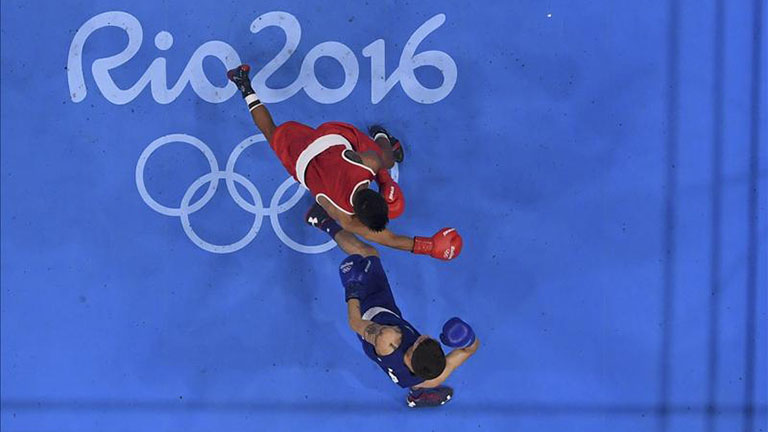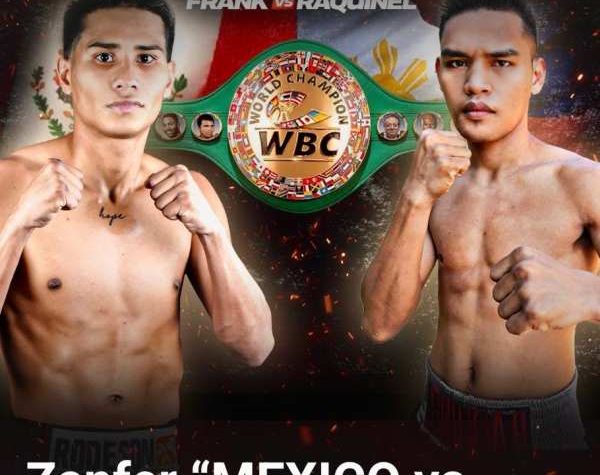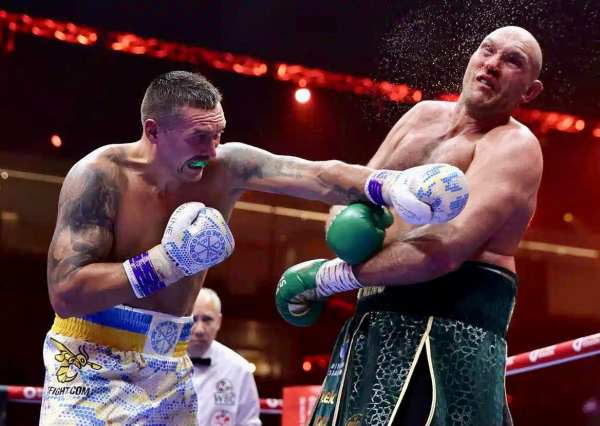
As the Tokyo 2020 cycle start, Chris Kempson considers whether home advantage will help Japan

Action Images
by BN Staff
Hosting the summer Olympic Games does not necessarily guarantee the host nation winning a large haul of medals or even a medal at all in the boxing ring.
Host countries London 1948 (GB), Melbourne 1956 (Australia), Montreal 1976 (Canada), Barcelona 1992 (Spain), Sydney 2000 (Australia) and Athens 2004 (Greece) did not bag a gold medal between them; indeed Montreal, Sydney and Athens did not yield a single ring medal for the host country.
So, Tokyo in 2020, might proceed with caution when eyeing up its own ring medal potential.
We now take a closer look at how host countries fared in the medal table in the post-World War 2 Summer Games. In 1948 GB won a mere two silvers, Finland landed a gold and four bronze in Helsinki in 1952, while Australia captured a single bronze in Melbourne in 1956.
The Italians fared very well in Rome in 1960, with three gold, three silver and one bronze medal; Tokyo in 1964 saw Japan land a single gold. Mexico achieved two gold and two bronze in Mexico City in 1968; while Munich in 1968, saw the then West Germany and the then East Germany capture one gold apiece with the then West Germany also taking a bronze.
Moscow in 1980 was somewhat of a phenomenon for the Soviets who won one gold, six silver and one bronze. These Games were boycotted by 65 nations led by the USA in view of the Soviet invasion of Afghanistan and one might have thought the door was open for many Soviet triumphs. However, the Cubans had other ideas, winning six gold, two silver and two bronze with four of their boxers defeating Soviet opposition in five of the finals. A sure case of it doesn’t always work out for the home nation even when much is stacked in its favour.
However the Soviet led boycott of 14 nations, which included Cuba and most of the former east European countries four years later in Los Angeles, gave the USA, a huge medal haul (the biggest in the history of the post World War 11 Games), with nine golds from 12 weight divisions, one silver and a bronze too for good measure. The United States capitalised on this situation in a big way; unlike he Soviets four years earlier.
The South Koreans bagged two gold, one silver and a bronze in Seoul in 1988, while Spain landed a lone silver in Barcelona in 1992. America’s success in Atlanta in 1996 was so different from Los Angeles in 1984, with just one gold and five bronze medals on this occasion. How fortunes can change within a few years it seems.
The Peoples Republic of China came of age in Beijing in 2008, collecting two gold, one silver and one bronze; while London 2012 was triumph for Team GB with three golds, one silver and a bronze, with women allowed to box for the first time in the summer Games, flyweight Nicola Adams triumphed with one of the gold medals.
In Rio in 2016 Brazil won their first ever gold medal in the Olympic boxing ring. It was their sole ring medal at their own Games.
So what does all of this tell us? I hasten to add these are some of my own thoughts and mine alone, please read as follows: home advantage can assist but other factors, such as boycotts, can play their part too: the numbers of boxers, the standing and standard of amateur boxing in the host nation is very important; the qualifying process for nations could affect the quality of boxers who might share the ring with those from the host nation: judging and officialdom generally can play a part in the success or otherwise of host nations’ boxers; the intensity and volume of home crowd support which can “lift” performances; the lure of professionalism and the trappings that come with it can derail some potential Olympic competitors. I am sure there are many more factors which can and probably do determine fate of boxers from host countries. I offer the above to inspire discussion, never a bad thing.
Now for my personal Cuban revolutionary “bombshell”. As the summer Olympic movement is currently constructed, there is no chance that the tiny island of Cuba could ever host the Games in its own right; but what a huge gesture from the IOC and its boxing authorities, if Cuba were to be allowed on one occasion to stage the boxing events in the Games. Almost fifty years ago – come Tokyo 2020 – Cuba burst upon the Olympic boxing scene in Munich in 1972, winning three gold medals; they have been a dominant Olympic force in the ring ever since. Such a gesture is long overdue and thoroughly warranted.
So, IOC and AIBA over to you. The Games are ever changing as is the sporting world, so why not take a chance and reward a small country like Cuba with such a positive and overdue gesture? It is fine to summon the sportsmen and women of the world to meet every four years in large cities across the globe; but we must not lose sight of the fact that so many countries will never have the opportunity to stage a full blown Olympics; so in a spirit of cooperation and friendship, do bring some elements of the Games to those who will never ever have the chance to stage them for themselves. Is this really too much to ask in the modern world?
Fantasy, pie in the sky, call it what you will, isn’t it high time that large sporting organisations recognise those smaller nations who have done so much to kindle interest and excellence in particular sporting fields; surely Cuba and amateur boxing is one such case. No doubt there are others too. I now rest my case.





More News
Liu Gang, Brico Santig Join Forces
Highland’s Double Impact: August 18 at Lumpinee
Balajadia, Atencio in Action in Thailand